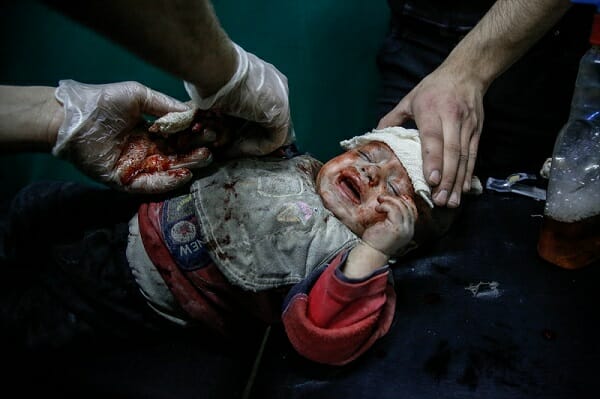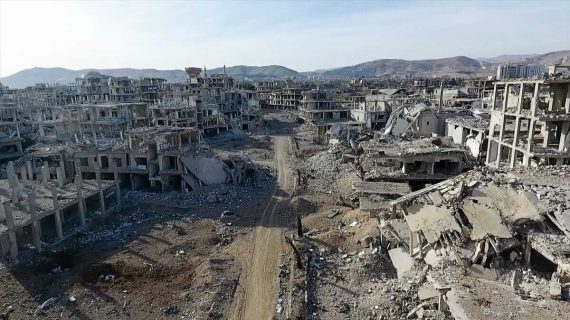The Assad regime late Wednesday attacked residential areas in Syria’s Eastern Ghouta district with chlorine gas, Syrian Civil Defense said.
The attack came late at night in Eastern Ghouta’s village of Hammuriyah, the civil defense group, known as the White Helmets, said on its social media account.
The posting said that many women and children were affected by the gas but that their number and condition are not yet clear, since intense attacks by the regime and its supporters are ongoing and the roads are closed.
On March 12, the Assad regime cut Eastern Ghouta into three distinct parts, to capture southern Hammuriyah, where it also conducted attacks, including poison gas attacks, on civilian areas.

Despite a UN Security Council cease-fire resolution, on March 3 the regime and its allies began a major ground operation — backed by Russian air power — aimed at decisively capturing Eastern Ghouta, an opposition-held suburb of Damascus.
Recommended
On Feb. 24, the UN Security Council unanimously adopted Resolution 2401, which calls for a month-long cease-fire in Syria — especially Eastern Ghouta — to allow the delivery of humanitarian aid.
Three days later, Russia announced its own cease-fire initiative, calling for daily, five-hour “humanitarian pauses” in the opposition-held district.
Home to some 400,000 people, Eastern Ghouta has remained the target of a crippling regime siege for the last five years.
The regime has stepped up its siege in recent months, preventing the delivery of badly needed humanitarian aid and leaving thousands of residents in need of medical treatment.
Last week, a UN inquiry commission released a report accusing the Assad regime of committing war crimes in Eastern Ghouta, including the use of chemical weapons on civilians, causing mass starvation, and forcibly preventing medical evacuations.
Source: AA





